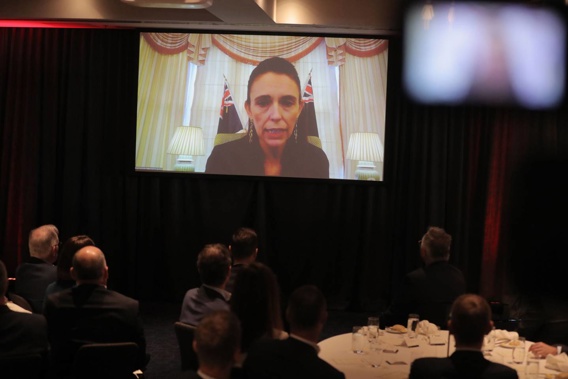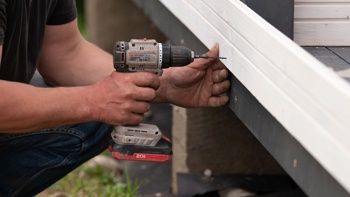
New Zealand's border will fully reopen from July 31 - two months earlier than the Government initially planned.
Prime Minister Jacinda Ardern confirmed the new date, which has been brought forward from October, while speaking to a Business NZ lunch in Auckland today.
The final part of the staged border reopening will open the country back up to all visa categories - including tourists, workers, families and students.
Ardern also announced a raft of immigration changes including pathways to residency for highly-skilled workers in global demand.
The new settings also include long-signalled changes to the international education sector, also fully reopening by July 31 but with measures to stop it being used as a "backdoor route to residency".
Ardern said the changes would help address immediate skill shortages and speed up the economic recovery from Covid-19.
The final part of the staged border reopening will open the country back up to all visa categories - including tourists, workers, families and students.
The July timeframe also brings it in line with travellers under the Accredited Employer Work Visa, while allowing time for Immigration NZ to prepare to process the visas, with resources already stretched and potentially impacting the processing of one-off residency applications.
"New Zealand is in demand and now fully open for business," Ardern said.
"This will be welcome news for families, businesses and our migrant communities. It also provides certainty and good preparation time for airlines and cruise ship companies planning a return to New Zealand in the peak spring and summer seasons."
It will also provide relief to industries crying out for workers, the tertiary education sector, and split-migrant families from countries needing visas, who will have been separated for nearly two and a half years.
On pre-departure testing, Ardern said that would be removed from the July 31 reopening.
Changes to immigration settings included a simplified immigration process, and visa extensions for around 20,000 migrants already in New Zealand to ensure skilled workers remained in the country.
It also included a "Green List" of over 85 hard to fill roles to attract and retain high-skilled workers to fill skill shortages. This involved a streamlined and prioritised pathway to residency incentivising high skilled healthcare, engineers, trade and tech sector workers to relocate to New Zealand long term.
The Green List involved 56 jobs that could go straight to residency, while 29 jobs people could apply for residency after two years.
Giving certainty to those bringing skills here had been a missing piece in the immigration system, Ardern said.
"We know a major constraint on business is access to skilled labour. This plan will increase the available pool of labour, while also speeding up our tourism recovery," Ardern said.
The Government has also announced new rebalanced immigration settings which will help businesses access the key skills they need while ensuring wages and working conditions are improved for everyone.
Migrants employed in occupations under the Green List could come to New Zealand on a work visa from July 4 and apply for residence from September 2022.
From September, residence could also be applied for directly from offshore. Minimum salary requirements applied in some areas, and would be indexed to the median wage and change over time.
Today's announcement comes as experts warn of a brain drain with Kiwis heading overseas, depleting the country of vital workers in short-staffed industries with the immigration settings here less attractive than in countries like Australia and Canada.
Rebalanced immigration system simpler, moving more online
Immigration Minister Kris Faafoi said New Zealand could not return to pre-pandemic trends that relied on lower-skilled workers and resulted in the increased exploitation of migrants.
Over the past two years, over 190,000 New Zealanders had done trades training, including apprenticeships, he said.
An extension to the Apprenticeship Boost scheme at a lower rate, announced on Monday, would see a further 38,000 New Zealanders supported into a trade.
Faafoi said the rebalanced immigration system would be simpler, moving more online and with fewer categories.
"Through the Accredited Employer Work Visa, employers won't need to provide as much information, can use their own recruitment processes to prove no New Zealanders are available for work, and Immigration New Zealand will endeavour to have these visas processed within 30 days once an employer is accredited.
"The Government recognises that shift for some sectors is more challenging than others by establishing new sector agreements to assist with the transition. They will provide access for specified sectors to lower-paid migrant workers, and all those employers can continue to hire working holidaymakers at any wage."
Faafoi said that for some sectors it would take time to transition away from a "reliance on cheap migrant labour".
The tourism and hospitality industries in particular have been hit hard by the pandemic, he said.
"The Government has agreed to temporarily exempt tourism and hospitality businesses from paying the median wage to recruit migrants on an Accredited Employer Work Visa into most roles.
"Instead, a lower wage threshold of $25 per hour will be required until April 2023. This follows the recent $27 per hour border exception that was granted around certain snow season roles to help the sector prepare for winter tourists."
New sector agreements for the care; construction and infrastructure; meat processing; seafood; and seasonal snow and adventure tourism sectors will provide for a short-term or ongoing need for access to lower-paid migrants.
Around 20,000 visa holders with visas expiring before 2023 were being granted either a six-month extension or a new two-year visa with open work conditions, so they and their employers won't be affected by these changes, he said.
Today's announcement comes after several Government speeches throughout the pandemic about immigration settings, with a "reset" announced a year ago to target wealthy investors and "highly skilled workers" and to build up the local workforce.
University of Otago epidemiologist Michael Baker said bringing forward the full border reopening would have minimal impact on case numbers and preventing new variants, given people were already travelling here from around the world.
This was despite case numbers starting to track up again, with a 50 per cent increase in Auckland over the past three weeks from a seven-day moving average of 1569 cases on April 19 to 2390.
He said the focus needed to be on quickly identifying new variants at the border, and a conversation had about what conditions could be needed to close the border again, for example, if a highly deadly variant emerged.
Ardern today said Covid-19 and the war in Ukraine were destabilising the global economy.
She said recent chats with Prime Ministers from the Netherlands, Spain and Sweden had highlighted some of these concerns.
"There are heavy clouds in the world at the moment," she added.
But Ardern said her overseas counterparts also gave her hope.
She said there was cause for Kiwis to be optimistic, thanks to low unemployment, and debt levels half of Australia's.
The PM said promising developments were underway with training and apprenticeship boosts.
She then catalogued a list of what she said were the Government's achievements, before announcing the border reopening date.
Take your Radio, Podcasts and Music with you









